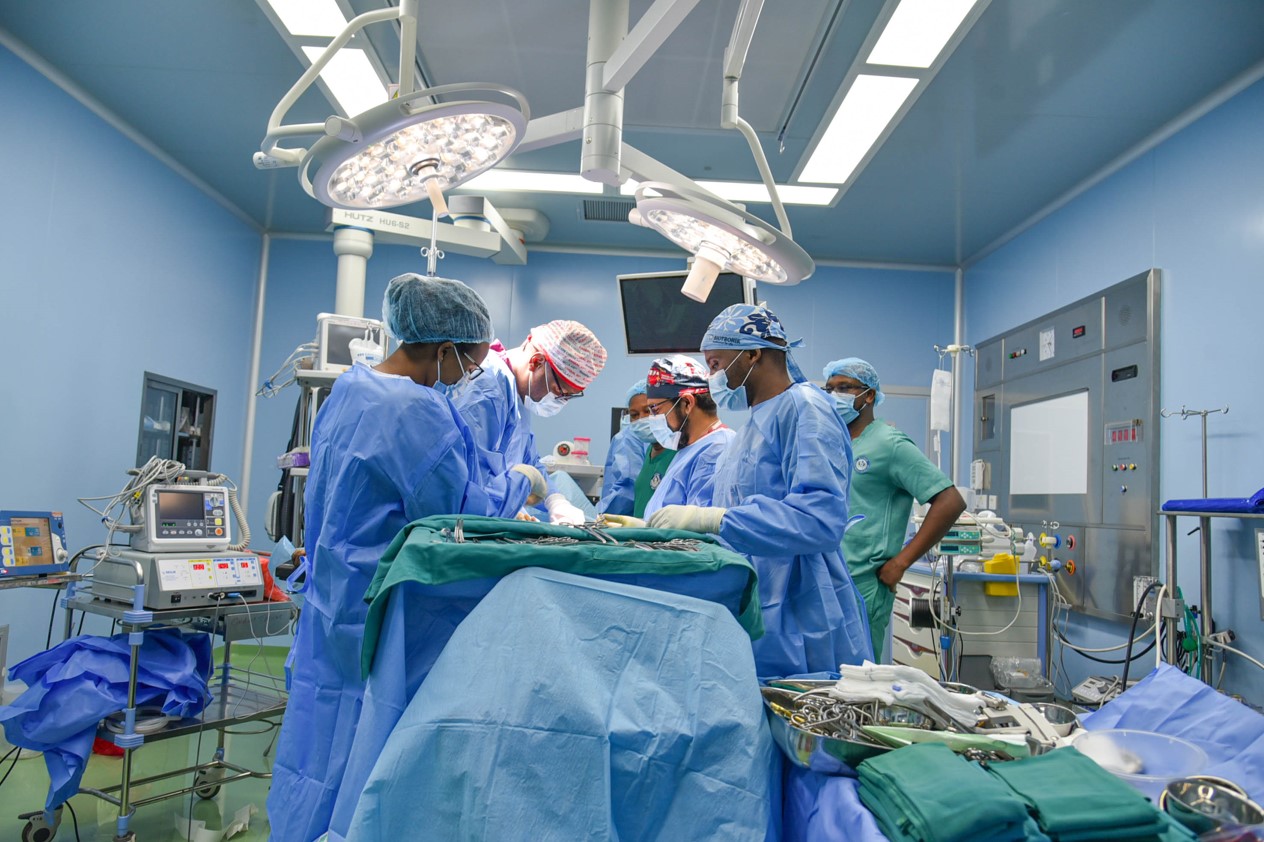World Medical Association urges Kenya to prioritise safety in maternal health surgical care

The WMA is raising a red flag over the dangers of unqualified healthcare workers performing complex procedures like Cesarean sections, stressing that only fully trained and accredited specialists should be entrusted with such critical surgeries.
The World Medical Association (WMA), a global voice for physicians, has rallied behind the Kenya Medical Association (KMA) and the Kenya Obstetrical and Gynaecological Society (KOGS) in their call to uphold the highest standards in maternal surgical care.
With the lives of mothers and babies at stake, the WMA is raising a red flag over the dangers of unqualified healthcare workers performing complex procedures like Cesarean sections, stressing that only fully trained and accredited specialists should be entrusted with such critical surgeries.
More To Read
- Tana River Senator seeks Senate health probe after pregnant woman dies from snakebite
- Africa’s hidden stillbirth crisis: New report exposes major policy and data gaps
- New study reveals why young mothers in Kenya are at higher risk of preterm births
- MPs alarmed by soaring caesarean births, demand overhaul of maternal care in Kenya
- New hope for mothers as WHO unveils life-saving guidelines to tackle postpartum haemorrhage deaths
- Vaccines and motherhood: Are AI-generated health messages working in Kenya and Nigeria?
In a statement, the WMA backed the stance of KMA and KOGS, warning that lowering these crucial standards could have serious implications as far as maternal and neonatal health is concerned.
"Compromising these critical standards endangers lives, threatens maternal and neonatal health, and risks undoing hard-earned progress in patient safety," stated The World Medical Association.
"Maternal and neonatal health are fundamental components of the broader public health framework. Any action that endangers their safety has far-reaching consequences."
The WMA emphasised that while the contribution of clinical officers and other healthcare workers is valuable, surgical procedures, especially in obstetrics and gynaecology, require the expertise of highly trained specialists.
Research indicates a significant global increase in Cesarean section (C-section) rates over recent decades. Between 1990 and 2014, the global average C-section rate rose by 12.4%, from 6.7% to 19.1%.
While C-sections are essential for saving the lives of mothers and babies in certain circumstances, the growing number of such procedures has raised concerns about the safety of patients and the qualifications of the individuals performing them.
The WMA expressed alarm over the potential consequences of expanding healthcare professionals' roles without solid, evidence-based frameworks.
They warned that this would contradict the medical principle of "Primum non nocere", placing patients at risk for preventable harm.
"Allowing unqualified individuals to perform such procedures may undermine the progress made in improving maternal health and jeopardise the wellbeing of those who depend on these services," the Medical Association stated.
The association reiterated the need for a comprehensive, evidence-driven approach to policy decisions, with no influence from political or financial pressures.
They further stressed that expanding the scope of practice must be accompanied by significant investments in specialised education, regulatory oversight, and continued professional development.
Echoing the call from KMA and KOGS, the WMA urged Kenya's Ministry of Health, Parliament, and other relevant authorities to prioritise patient safety. They called for policies that uphold the highest standards of healthcare and protect the lives of mothers and children in the country.
"It is essential that we work together to ensure that healthcare in Kenya is driven by the highest standards of safety, competency, and professionalism," WMA concluded.
Top Stories Today











































